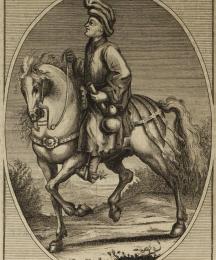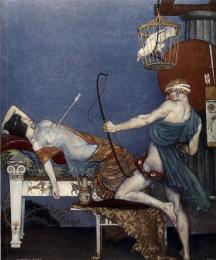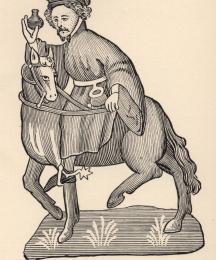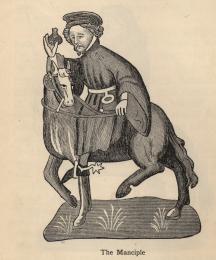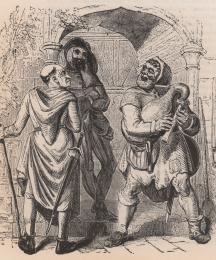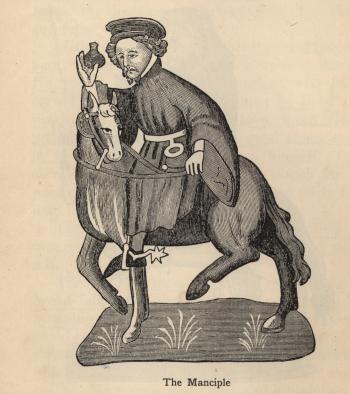
"A gentil Maunciple was ther of a temple,
Of which achatours myghte take exemple
For to be wise in byynge of vitaille;
For wheither that he payde of took by taille,
Algate he wayted so in his achaat
That he was ay biforn and in good staat.
Now is nat that of God a ful fair grace
That swich a lewed mannes wit shal pace
The wisdom of an heep of lerned men?" (567-575)
The Manciple tells the tale of how the crow, a pet of Apollo, came to have black feathers. The crow told Apollo that his wife was unfaithful to them, and though the crow spoke truly, Apollo punished him for bringing bad news. The Manciple then provides a moral to the tale: "kepe wel thy tonge and thenk upon the crowe" (362).
Of which achatours myghte take exemple
For to be wise in byynge of vitaille;
For wheither that he payde of took by taille,
Algate he wayted so in his achaat
That he was ay biforn and in good staat.
Now is nat that of God a ful fair grace
That swich a lewed mannes wit shal pace
The wisdom of an heep of lerned men?" (567-575)
The Manciple tells the tale of how the crow, a pet of Apollo, came to have black feathers. The crow told Apollo that his wife was unfaithful to them, and though the crow spoke truly, Apollo punished him for bringing bad news. The Manciple then provides a moral to the tale: "kepe wel thy tonge and thenk upon the crowe" (362).
Bibliography
Chaucer, Geoffrey. The Riverside Chaucer . Ed. Larry D. Benson. 3rd ed. Boston: Houghton, 1987.






